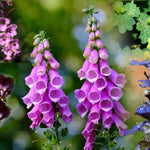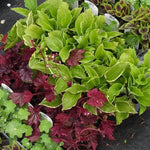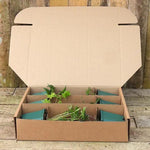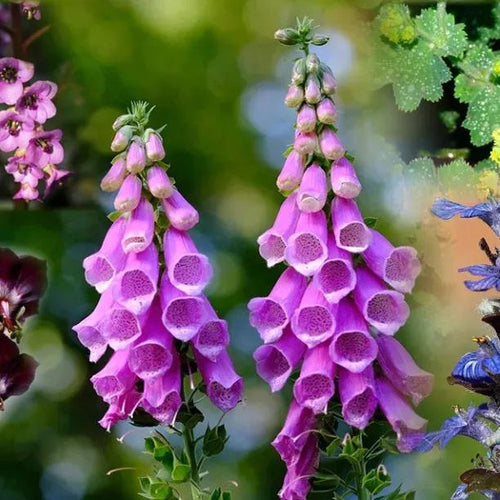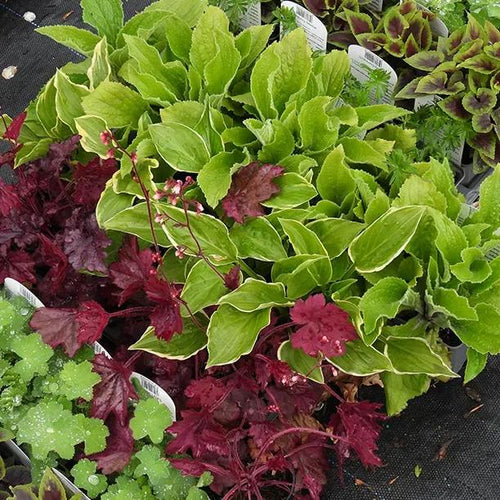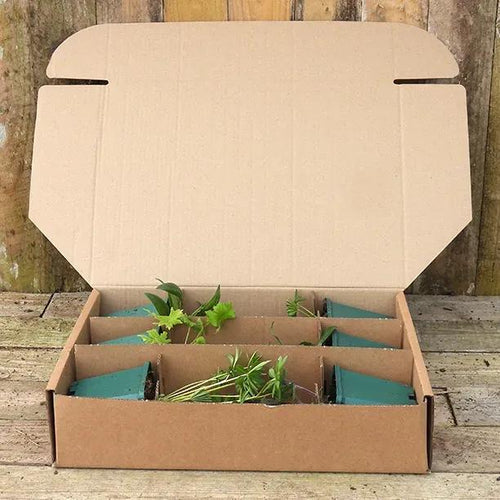Herbaceous Collection, Shady Characters
They're out of the sunlight, so that means our hand-picked troupe of shade-tolerant beauties will have to be in the spotlight! Fewer plants thrive in areas of the garden that don't bask in sun all day, but many classic, exciting perennials are happy there. Step forward our collection of favourites to take a bow.
Browse our other herbaceous perennial collections, or all of our perennial plants.
Features
- 6 varieties of shade-suited plants chosen by our garden design experts
- 9cm Pot per plant
- Planting instructions supplied with each pot
Our carefully-curated range of shade-tolerant plants includes, but isn't limited to, the following:
Ajuga reptans, Alchemilla mollis, Astilbe chinensis, Bergenia cordifolia, Digitalis, Geranium phaeum, Primula vulgaris, Viola labradorica.
Please note: We cannot accept requests for specific plants. We select a mix of the best at the time of delivery. The pictures are examples only, your mix may vary.
Growing Shady Plants
As long as your planting area isn't in permanent gloom, many perennials will appreciate some respite from the sun's rays, especially at midday. All plants need a touch of sun, but these shade-tolerant types require only three to six hours per day; if the shade is only dappled, most should cope with even fewer hours of direct light.
Garden Design Ideas
Darker colours will be more subtle, whereas yellows and whites will look fresh and zingy, especially if there is dramatic foliage around them. It's better to use splashes of colour in the mix because dark-leaved plants can make an area look rather gloomy. Pair with our Back of the Border range, which will throw some shade of its own. The collection will also work well under fruit trees, such as apples or pears, our favourite of the latter and the most constantly rewarding being the Conference.
History & Trivia
Shade-tolerant plants have learnt to make do with lean amounts of energy in various ways, often by having a high leaf to "rest of the plant" ratio, with a high density of chlorophyll to catch the most sunlight for photosynthesis. Some, as epitomised by the aptly named Elephant Ears (bergenias) and hostas, are small plants with big, broad leaves. Other, larger shrubs like Box have many small leaves. Either way, their leaves are tuned to make the most of low light levels, as opposed to having the capacity to harvest as much energy as possible from full sun. To compensate for their slow growth rate, a common trend is to have high resistance to disease and to be unpalatable to herbivores.








 Secure, One-Tap Checkout
Secure, One-Tap Checkout
 Hand Picked, Delivered to Your Door!
Hand Picked, Delivered to Your Door! 1 Year Bareroot Guarantee
1 Year Bareroot Guarantee